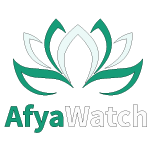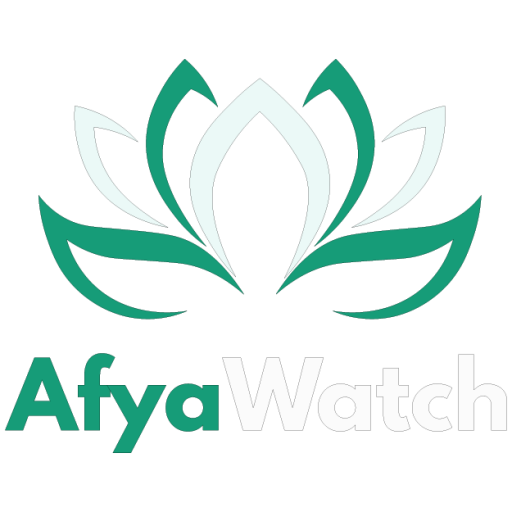Kenya’s Pharmacy and Poisons’ Board (PPB) has granted emergency medical authorization for the Sputnik V Covid-19 vaccine.
In a notice dated March 24, 2021, the PPB said it gave the Russian jab the green light after doing the required evaluation.
What this basically means is that the vaccine is cleared for use in the country.
The state regulator is categorical that the move does not amount to the sale of the vaccine.
The board is mandated with the authorization of safety monitoring of medicines and health technologies, as guided by the National Vaccines and Immunization Programme (NVIP). It uses ministry guidelines to determine what vaccines to buy based on factors such as cost and cold chain considerations.
Sputnik V is stored at a temperature of -18 degrees but the Russian Health Federation has approved storage levels between 2 and 8 degrees for the jab.
PPB said the Russian vaccine, which has an efficacy of 91 per cent, had checked off all the boxes during the evaluation process.
“The application for Emergency Use Authorization or Russia’s Sputnik V vaccine has been approved after it met all requirements,” said the board
“In reviewing the Sputnik V vaccine, the Board considered all aspects of quality, safety and efficacy. It is wholesomely safe,” went on the statement.
CAS Dr Mercy Mwangangi on Sputnik V Covid-19 Vaccine
Health CAS Dr Mercy Mwangangi has also confirmed that the Pharmacy and Poisons Board’s decision to grant emergency medical authorization to the Russian jab.
The CAS has dismissed an advertisement on the availability of the Sputnik V vaccine by a Nanyuki hospital appearing in sections of local media and online posts that offered the jab at prices ranging from Sh5,000-11,000 per person.
She termed the adverts as fake.
“As far as the ministry is concerned, the purported advertisements are fake. There is currently no pharmacy or chemist that has Sputnik V on sale,” said Dr Mwangangi.
She cautioned pharmacists and other drug distributors against publicizing sale offers for the vaccine, saying its sale had not been authorized yet.
“In fact, it is illegal for a facility to say that it has the vaccine on sale. No other vaccines apart from the Astra Zeneca one have received regulatory approval for use in the country,” the CAS said.
Vaccines and Misinformation
In the same breath, she appeared to brush off a story appearing in the Daily Nation that claimed that local entrepreneurs had sneaked in a consignment of Sputnik V vaccines to be sold in the country.
“We have a headline that has a fake or inaccurate story, and in these critical times, let us bear in mind that some of these stories could have an impact on vaccine hesitancy. Let us support the government in the program which is designed to protect Kenyans from severe disease in case of Covid-19 infection,” urged the CAS.
It is upon you as the media to ensure that you help us to combat misinformation by publishing accurate information, she added.
She was responding to a question on what the government was doing to combat misinformation and vaccine myths among members of the public when she made the remarks.
Dr Mwangangi said the vaccine would still be subject to a number of stringent tests and requirements.
“Before we grant marketing approval to any drug or medical product, we subject it to a comprehensive process that includes the emergency medical authorization, a tracking protocol, stringent reporting and restrictions on advertising.
Dr Mwangangi reiterated that the country would only procure its Covid-19 vaccines through the COVAX and Africa Union/ Centres for Disease Control (CDC) facilities.
“We are currently using the COVAX and AU/CDC facilities to procure vaccines for our national program. Should there be a need to get more vaccines, we will go directly to the drug manufacturers. We will not be using local distributors,” she said.
“The aim of the vaccination program is to vaccinate as many people as we can to achieve the glorious target of immunity. We will therefore be approving more vaccine going forward because the science tells us it is the right thing to do,” added the CAS.
She noted that the vaccine is used in 68 countries but added that the PPB would subject it to a thorough evaluation process before registration as an approved medical product.
“As it comes before us for approval, we will be looking at important aspects such as the clinical trials data, efficacy, correct dosage and areas of administration, vaccine batch numbers for proper tracking,” said the medic and administrator.
On his part, pharmacist Pharmaceutical Society of Kenya (PSK) president Dr Louis Machogu said the PPB’s move could mean that a supplier had applied for authorization. He did not however confirm whether the supplier was a member of the PSK.
Dr Machogu said the average global price of the vaccine was Sh1,500 and 2,000 per complete dose, adding that suppliers were however free to set their prices.
“The vaccine costs anything between Sh1,500 and 2,000 for a complete dose but it’s a free market, so suppliers are likely to factor in other costs like distribution and markup,” said the pharmacist.
“What the public needs to understand is that the EMA does not clear the jab for our market. It just means the jab could be prescribed for use by medics in the country. If you want to give to Kenyans, then it’s a must to seek registration subject to fulfilling statutory requirements,” he said.
“The registration helps identify who is allowed to sell which product in the country. Before it is given, the PPB must validate the vaccine’s clinical trial data and other relevant product details including its composition, documentation and storage. If anything happens due to the product’s use, follow up can then be easily done,” he said.
Dr Machogu said the registration process would establish among other facts, whether the vaccine was genuine and suitable for local use.
“The vaccine has a reported efficacy of between 91 and 92 per cent. It could be genuine, and in this case, I believe it to be, but where is the data to back up its claims? Who are you marketing it to when it is not registered for use?,” Dr Machogu posed.
He admitted that it was possible that the vaccine could have been imported into the country, but was categorical that Kenyans would not be seeing the product on sale before the required registration was completed.
“What the CAS is saying about the registration of medical products is true. Someone could have imported the vaccine or its components awaiting registration and was trying to gauge market reaction. I think the (registration process) is the missing part in all this but the PPB could be fast-tracking the process so that Kenyans get another reliable vaccine option on the table,” he said.
Dr Machogu has asked Kenyans to be patient and remain cautious as the PPB goes through the process of approving new vaccines.
“Let us not rush the process by opting for shortcuts. Whoever wants to market the vaccine should get it registered so that they can be responsible for its presence and use in the country,” he said.













1 comment